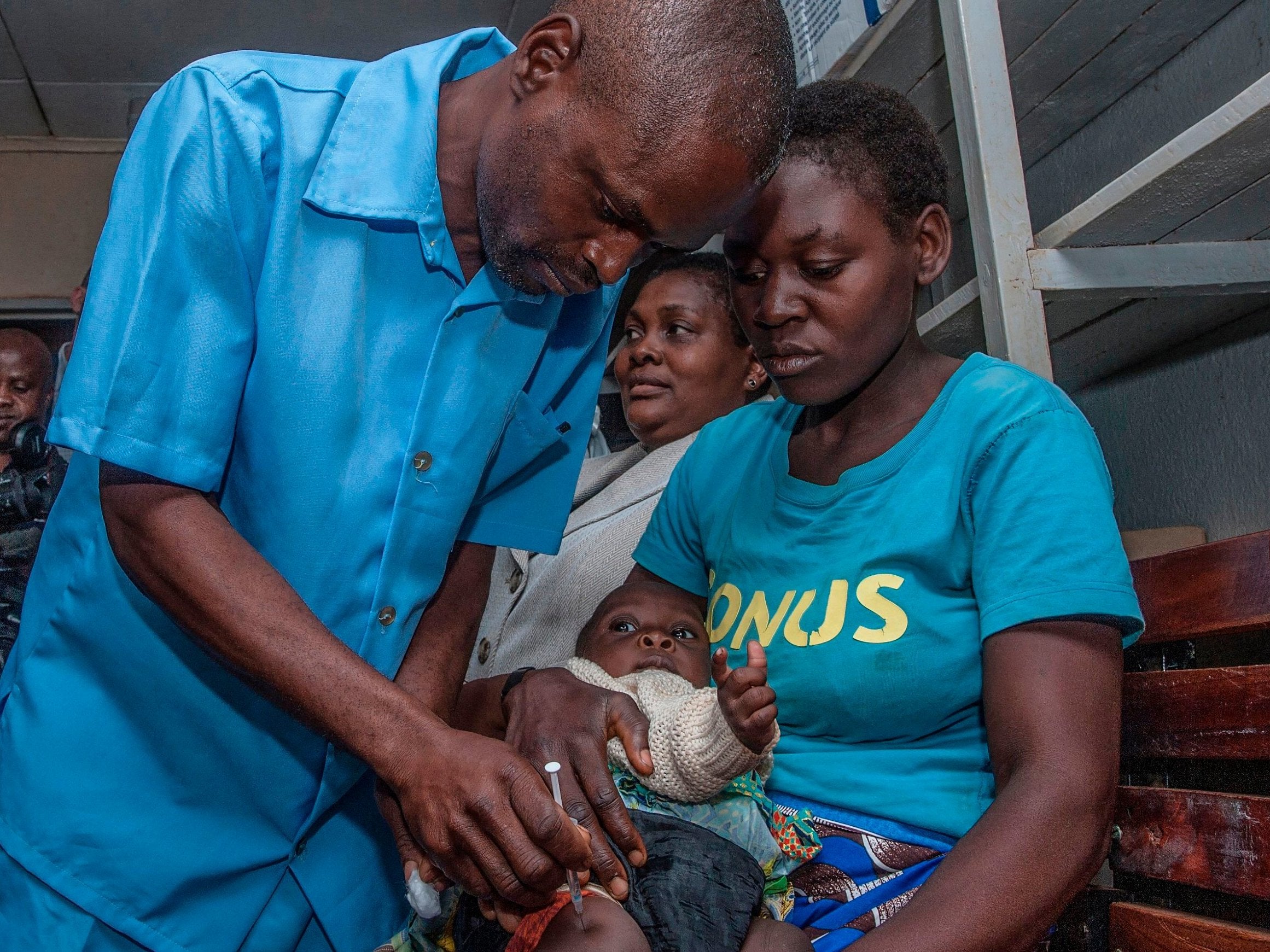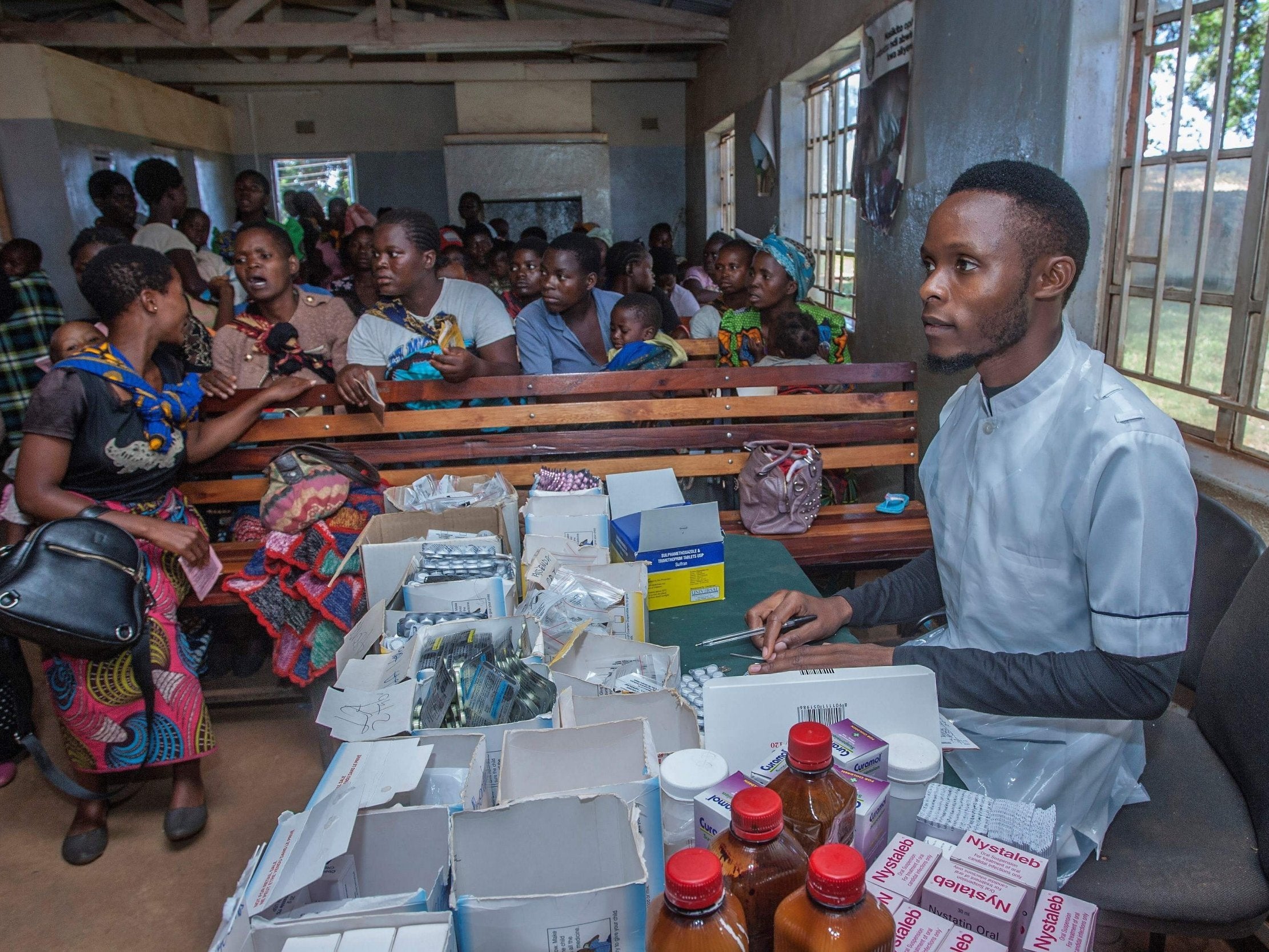Malawi begins 'historic' rollout of first ever malaria vaccine
Ghana and Kenya will introduce child vaccine in coming weeks following launch of landmark health programme

Your support helps us to tell the story
From reproductive rights to climate change to Big Tech, The Independent is on the ground when the story is developing. Whether it's investigating the financials of Elon Musk's pro-Trump PAC or producing our latest documentary, 'The A Word', which shines a light on the American women fighting for reproductive rights, we know how important it is to parse out the facts from the messaging.
At such a critical moment in US history, we need reporters on the ground. Your donation allows us to keep sending journalists to speak to both sides of the story.
The Independent is trusted by Americans across the entire political spectrum. And unlike many other quality news outlets, we choose not to lock Americans out of our reporting and analysis with paywalls. We believe quality journalism should be available to everyone, paid for by those who can afford it.
Your support makes all the difference.Malawi has become the very first country to begin immunising children against malaria, the World Health Organisation (WHO) has announced.
The impoverished nation in south-eastern Africa is using the first licensed vaccine to provide protection against the mosquito-spread disease in a “historic” nationwide programme.
Although the vaccine only protects about one-third of children who are immunised, those who get the shots are likely to have less severe cases of malaria. The parasitic disease kills about 435,000 people every year – the majority of them children under the age of five in Africa.
Pedro Alonso, director of WHO’s malaria program, said similar vaccination programmes would begin in the coming weeks in Kenya and Ghana, with the aim of reaching about 360,000 children across the three countries.
Mr Alonso called the vaccination rollout a “historic moment”. Despite acknowledging the vaccine was flawed, he said the world could not afford to wait for a better option. “We don’t know how long it will take to develop the next-generation vaccine. It may be many, many years away.”
The vaccine, known as Mosquirix, was developed by GlaxoSmithKline and was approved by the European Medicines Agency in 2015.
A previous trial showed the vaccine was about 30 per cent effective in children who got four doses, but that protection waned over time. Reported side effects include pain, fever and convulsions.
It took GSK and partners more than 30 years to develop the vaccine, at a cost of around $1bn (£770m). GSK is donating up to 10 million vaccine doses in the current vaccination initiatives. A company spokesman said GSK is working with partners to secure funding for potentially broader vaccination programmes.

Mr Alonso said the stalled progress against malaria demanded tools to combat now, noting that it was significantly more difficult to design a vaccine against a parasite as opposed to a bacterium or virus.
Resistance is growing to medicines that treat the disease, while mosquitoes are becoming more resistant to insecticides. In addition, funding for malaria efforts has plateaued in recent years.
“It’s an imperfect vaccine but it still has the potential to save tens of thousands of lives,” said Alister Craig, dean of biological sciences at the Liverpool School of Tropical Medicine, who is not linked to WHO or vaccine.
Mr Craig said immunising the most vulnerable children during peak malaria seasons could spare many thousands from falling ill or even dying.
Some experts have warned the vaccination programmes should not divert limited public health funds from inexpensive and proven tools to curb malaria such as bed nets and insecticides.
“This is a bold thing to do, but it’s not a silver bullet,” said Thomas Churcher, a malaria expert at Imperial College London. “As long as using the vaccine doesn’t interfere with other efforts, like the urgent need for new insecticides, it is a good thing to do.”
Mr Craig said one of health officials’ biggest challenges could be convincing parents to bring their children for repeated doses of a vaccine that only protects about a third of children for a limited amount of time.
More commonly used vaccines, like those for polio and measles, work more than 90 per cent of the time. “This malaria vaccine is going to save many lives, even if it is not as good as we would like,” Mr Craig said. “But I hope this will kick-start other research efforts so that the story doesn’t end here.”
Additional reporting by AP
Join our commenting forum
Join thought-provoking conversations, follow other Independent readers and see their replies
Comments